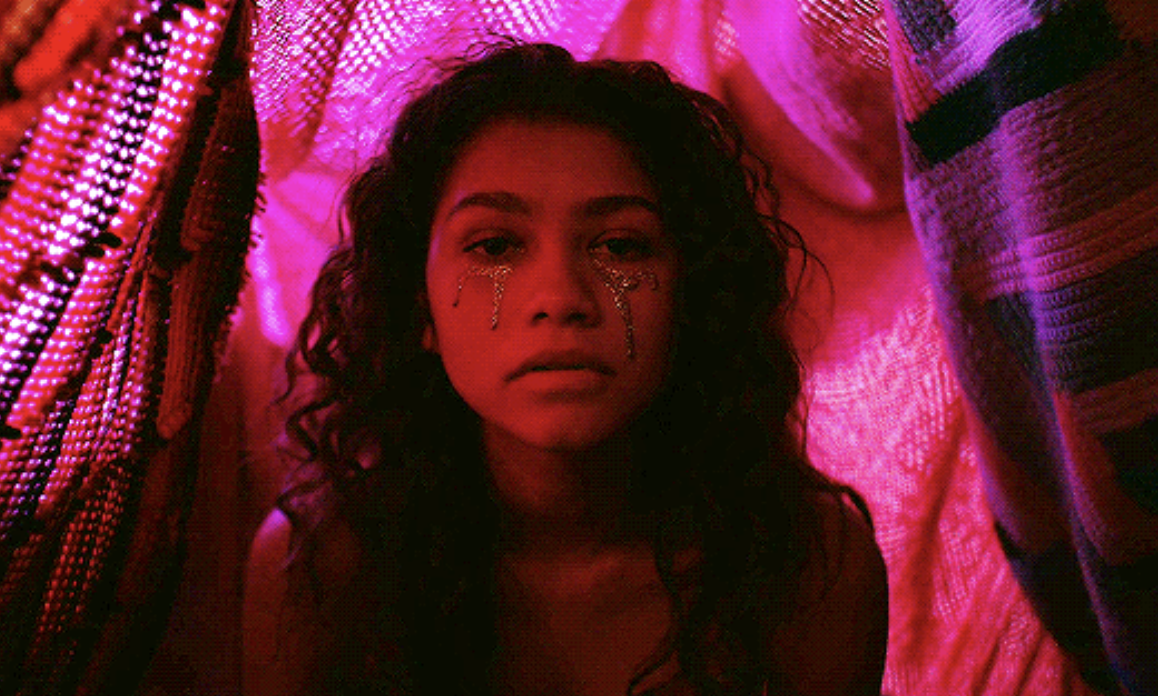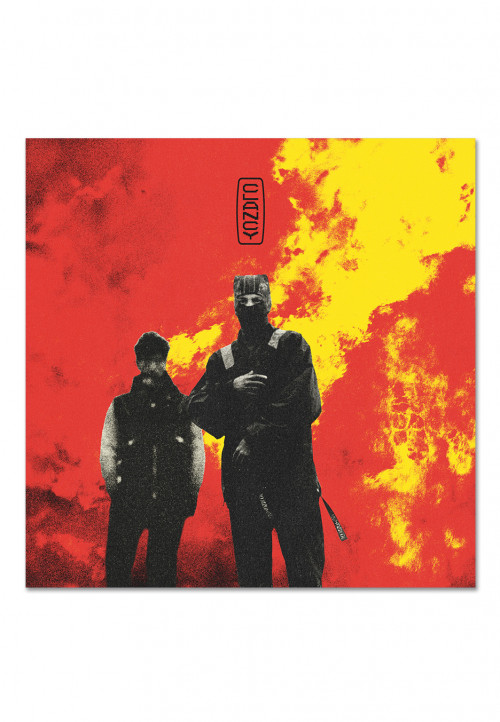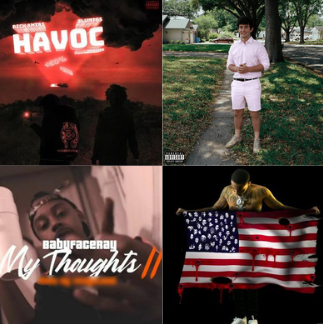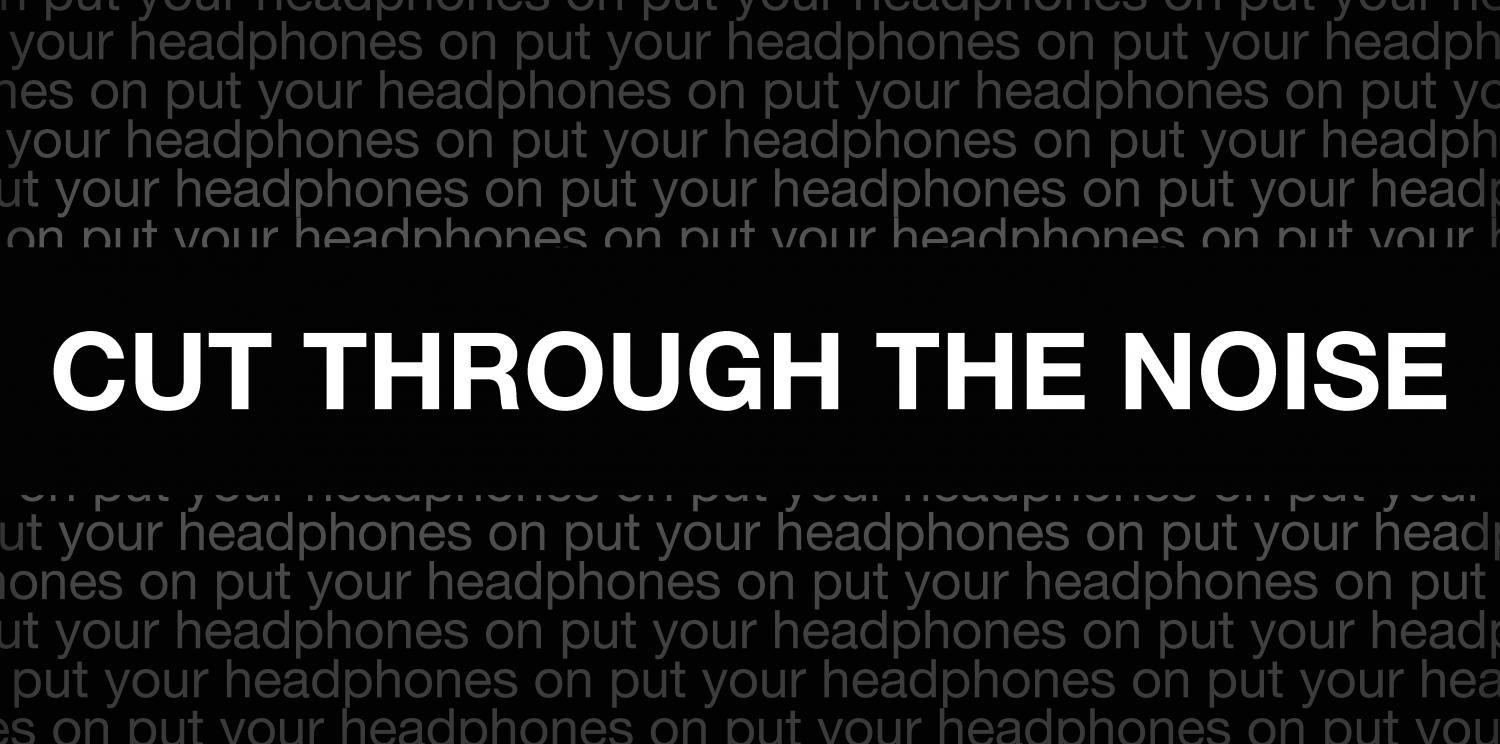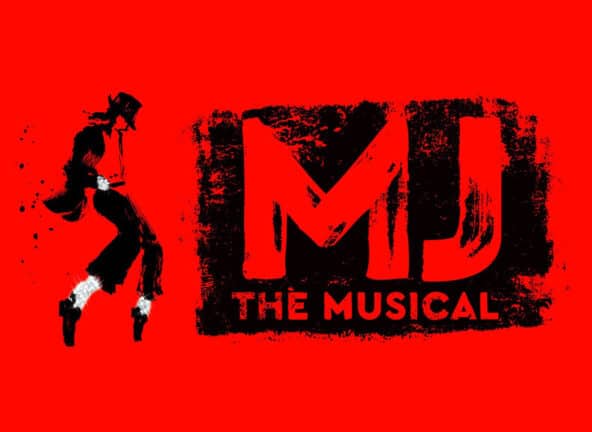Since its debut in June of 2019, “Euphoria” has been dominating the pop culture scene. From the revival of glitter eyeshadow to posing the question “what would Maddy do?,” “Euphoria” has seemingly wormed its way into most teenager’s fixations. The term “Euphoria Sundays” dominated 2022 TikTok as people eagerly awaited the weekly episode releases. While the show is known for its on-trend fashion and dazzling cinematography, it is also known for its explicit and often absurd content. “Euphoria” doesn’t shy away from topics such as drug abuse, domestic violence and sex. With such daring content and social influence, it is only natural that many have questioned what “Euphoria” might be teaching the current (and next) generation of teenagers.
“Euphoria’s” main character, Rue, played by the famous actress Zendaya, narrates the show and guides us through the complex lives of the teenage characters. Rue’s personal struggle, which is naturally a focal point of the show, is her addiction to a wide variety of substances. Rue is not the only character who uses drugs, though. Most of the characters dabble in drug use at some point. Rue, however, is the character with the most complex and multifaceted relationship with drugs.
Many worry that the portrayal of drugs within the show will glorify and encourage teen substance abuse. In fact, D.A.R.E (the Drug Abuse Resistance Education program known for their “just say no” slogan) has critiqued the show before for its normalization of teenage drug abuse. While it’s true that there are plenty of drugs in the show, “Euphoria” doesn’t necessarily glamourize Rue’s addiction. Throughout the show we watch Rue as she destroys the relationships with those closest to her because of her addiction. She spends time in rehab and Narcotics Anonymous, and we see how she hurts those closest to her through her reckless choices. “Euphoria” does a good job at focusing on the raw, honest struggle of drug addiction and Zendaya portrays a complicated and hurting teenager perfectly.
Despite this, there are ways that “Euphoria” does glamorize drug culture unintentionally. Though Zendaya portrays Rue as a struggling addict, she’s Zendaya. Being a world-renowned and loved celebrity immediately makes anything she does, even if it is drugs, feel glamorous and intriguing. This, paired with the beautiful cinematography of “Euphoria,” makes the drug related scenes seem like a beautiful dream at times. For example, at the end of season one, Rue overdoses. This prospect is incredibly sad in context of her storyline, but the scene is portrayed through as a beautifully lit, well-choreographed number to one of “Euphoria’s” most iconic songs. While there is a deep symbolism in this portrayal, it does feel like the aesthetic aspect of it takes the forefront, making Rue’s relapse seem beautiful and artistic rather than a dangerous warning about drug addiction. What’s also worth noting is that the other characters use drugs in a casual manner that isn’t fully addressed. While it takes focus to write a compelling addiction-based storyline, which could explain why Rue is the only character whose issues are constantly confronted, it feels unhealthy to let the other characters run wild trying drugs with no real contemplation on if it’s good for them.
What is perhaps more concerning to me about “Euphoria,” though, is its portrayal of domestic abuse and sex. Nate Jacobs (Jacob Elordi) serves as the “antagonist” of “Euphoria,” though I would argue that he isn’t antagonistic enough. Maddy Perez (Alexa Demie) and Nate have an on-and-off relationship throughout the show, like many teenagers. What is unlike many teenagers, though, is the disturbing nature of their relationship. There are several concerning scenes regarding them, including the time Nate literally threatened her with a gun or choked her until she had bruises.
Despite these instances of violence, they keep coming back to each other. When Maddy is choked by Nate, the police get involved and Maddy resists their attempts to help her and refuses to talk about the bruises, resulting in a traumatic struggle for power. While it’s true that teenage girls don’t always understand the full extent of abuse or their right to exercise personal autonomy, “Euphoria” actively normalizes this. Even if it’s realistic for people to go back to abusive partners, it feels like your token “strong female” character getting choked is a fitting time to promote walking away from abusive relationships. Additionally, there is research showing that non-fatal strangulation is a huge risk-factor related to homicide against women. Despite this, by the end of the next episode her and Nate are kissing again in a testament of their unyielding, toxic love. The “helplessly in love” trope played up by “Euphoria” in their continuous revival of Nate and Maddy’s relationship implies that it is normal, and even beautiful, to allow abusive behavior in your relationships.
If you want to know if “Euphoria” is truly “bad” for teens, there is more to consider. One thing that is often overlooked is the question of how gullible teens truly are. Yes, “Euphoria” is set in high school, but it is often a hyperbolic representation of the high school experience (for example: where are all of their backpacks?). A lot of the show is suspended in non-reality and serves more as a symbolic representation of the teenage lifestyle rather than a literal one. This hasn’t gone unnoticed, as social media has scrutinized the unrealistic portrayal of the average high schooler on “Euphoria.” Knowing this, it may be unlikely that “Euphoria” is actually influencing the way teenagers perceive their day-to-day lives.
“Euphoria” also makes an active effort to denounce many of the things portrayed within the show, just in a subtle way. Maddy may get back together with Nate, but it is subtly implied that he is a misogynistic and abusive character who traumatizes the women around him. Behind the flashy lights and music, Rue is genuinely struggling. “Euphoria’s” social commentary is subtle, but it’s there. Getting the deeper message of “Euphoria” beneath all the glamor requires viewers to critically analyze the show and be engaged in seeing beyond the surface level. This isn’t bad, but it also isn’t likely. Plenty of people, especially teenagers, watch TV to unwind rather than tune in to symbolism and metaphors. Especially with “Euphoria” attracting a younger audience, plenty of people will just see the pretty lights and beautiful actors doing drugs and making bad choices and by relation think that their behavior is also beautiful and cool. While “Euphoria” certainly has room to grow in its portrayal of hard-hitting topics, I don’t think it’s fair to say “Euphoria” is a danger to teens or a piece of media that will be the downfall of society.



